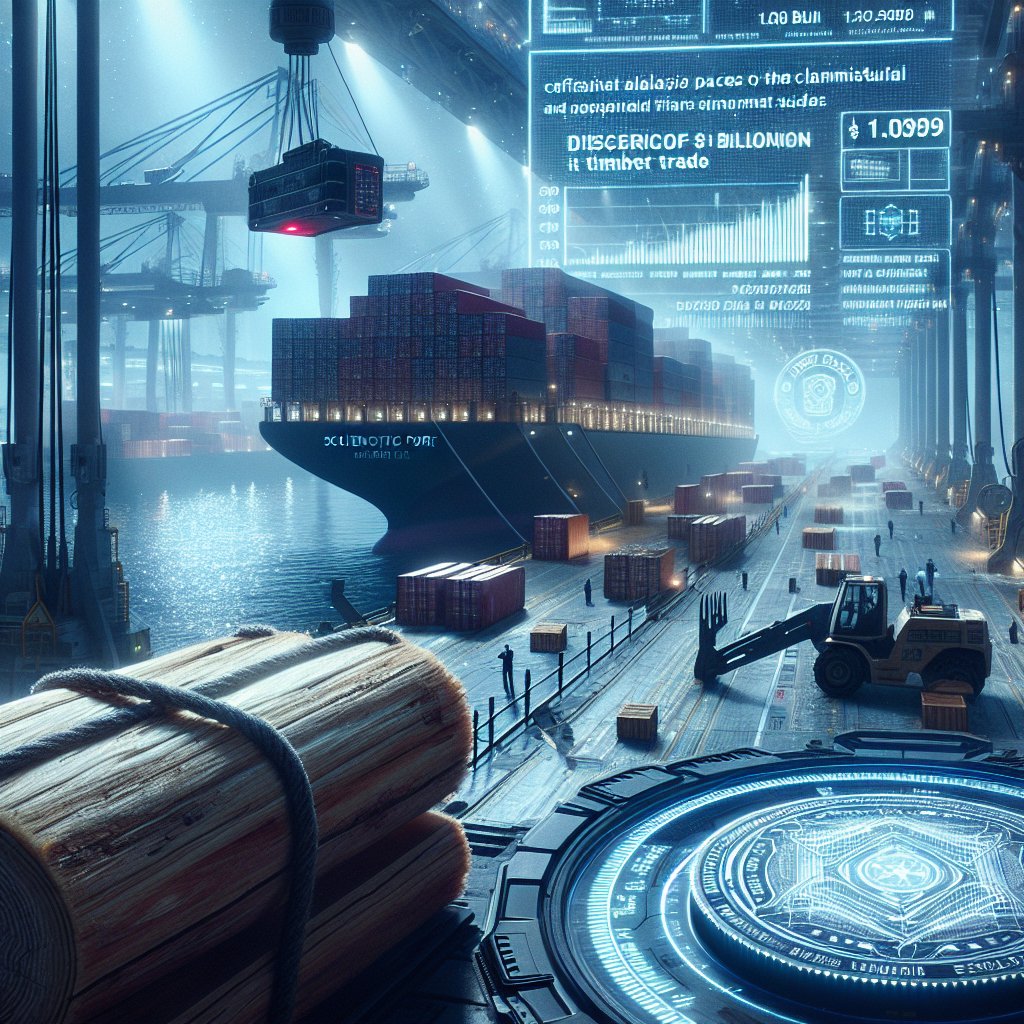Image created by AI
Douala Port: A Gateway for Illicit Trade and Organized Crime
Douala, Cameroon's bustling seaport, is making headlines for reasons aside from its staggering trade percentages. Amidst container-loaded docks and the hum of economic activity, there lies a shadow world where the lines of legality blur. A recent incident—a routine customs clearance for a timber shipment from the Central African Republic (CAR) to China—has peeled back another layer of the complicated onion that is global illicit trade.
At the heart of this particular exchange was Wood International Group, a sanctioned entity reportedly part of the Wagner Group's complex network. The Russian private military conglomerate is said to wield its power through a cadre of mercenary forces, offering muscle in exchange for mineral riches in conflict-prone regions of Africa. While the presence of such an entity on African soil raises its own set of complex geopolitical quandaries, it's the economic implications that are jarring the global trading ecosystem.
The unauthorized extraction and trade of valuable resources, from timber to minerals, has found a convenient throughway via the Port of Douala. Known for its strategic location—facilitating nearly 85% of the country's international trade—Douala has inadvertently become a haunt for organized criminal rings aiming to pedal unscrupulously obtained goods to voracious markets abroad.
Investigative efforts by the Pulitzer Center have brought to light the concerning trends in illegal logging activities within Cameroon and its adjacent forests. Despite legislative measures taken to curb such activities, the illegal logging industry has flourished, assisted in no small part by legitimate logging companies that bend the rules to launder their ill-gotten timber. Evidence of this comes in the form of incongruent trade data: a revealing $1.099-billion disparity between China and Vietnam's reported timber imports from Cameroon and the country's reported exports to these nations, according to UN Comtrade data evaluated from 2013 to 2018.
However, Douala's predicament as a preferential locale for crime syndicates is not an isolated narrative. It is a scene that recurs in different iterations across the globe, wherever ports serve as the critical junctions of international commerce. Case in point: the European Union, where the seemingly innocuous but ever-vigilant ports of Antwerp and Rotterdam snagged a sizable chunk of the illicit narcotics filtered into the continent.
The port's exploitation by criminal rings for their illicit trades has steered the importance of international watch bodies towards markets like Douala. The Global Initiative Against Transnational Organized Crime (GI-TOC) identified several African ports in their Illicit Economies and Instability Monitor, tagging them "high risk" for surreptitious activities.
In acknowledgment of the perils faced, the local governance has endeavored to implement security reforms within the Port of Douala. As a result, the port today stands better equipped, aligning with recognized international standards of goods management and oversight. Nevertheless, as GI-TOC's upcoming research indicates, the fortified physical infrastructure is still prone to abuse by corruption's serpentine grip.
For full effectiveness, the reinforcement must transcend the physical premises. The underbelly of the port's operational framework lies within its workforce. Rampant poor working conditions serve as a catalyst for the workforce's susceptibility to manipulation by criminal elements. Besides increasing the risk of occupational hazards, it becomes a silent ally in the hands' of crime syndicates.
Looking at Douala as a case study expounds broader lessons for ports across Africa—and indeed the world—caught in the crosshairs of organized crime's relentless expansion. Harnessing a blend of robust security measures and an upliftment of the human aspects—be it through better work conditions or heightened accountability—is instrumental in constructing a resilient front against these illicit networks.










